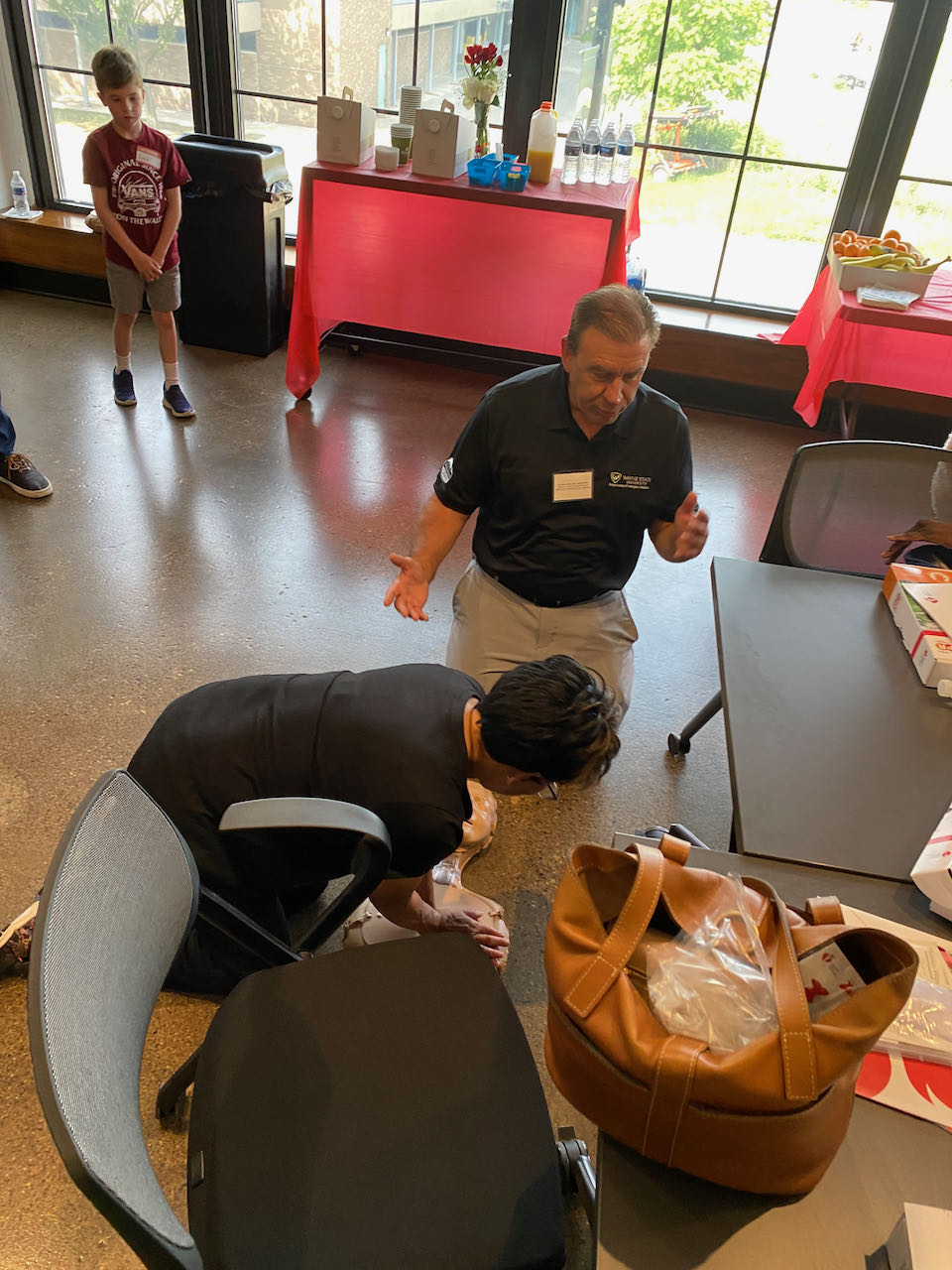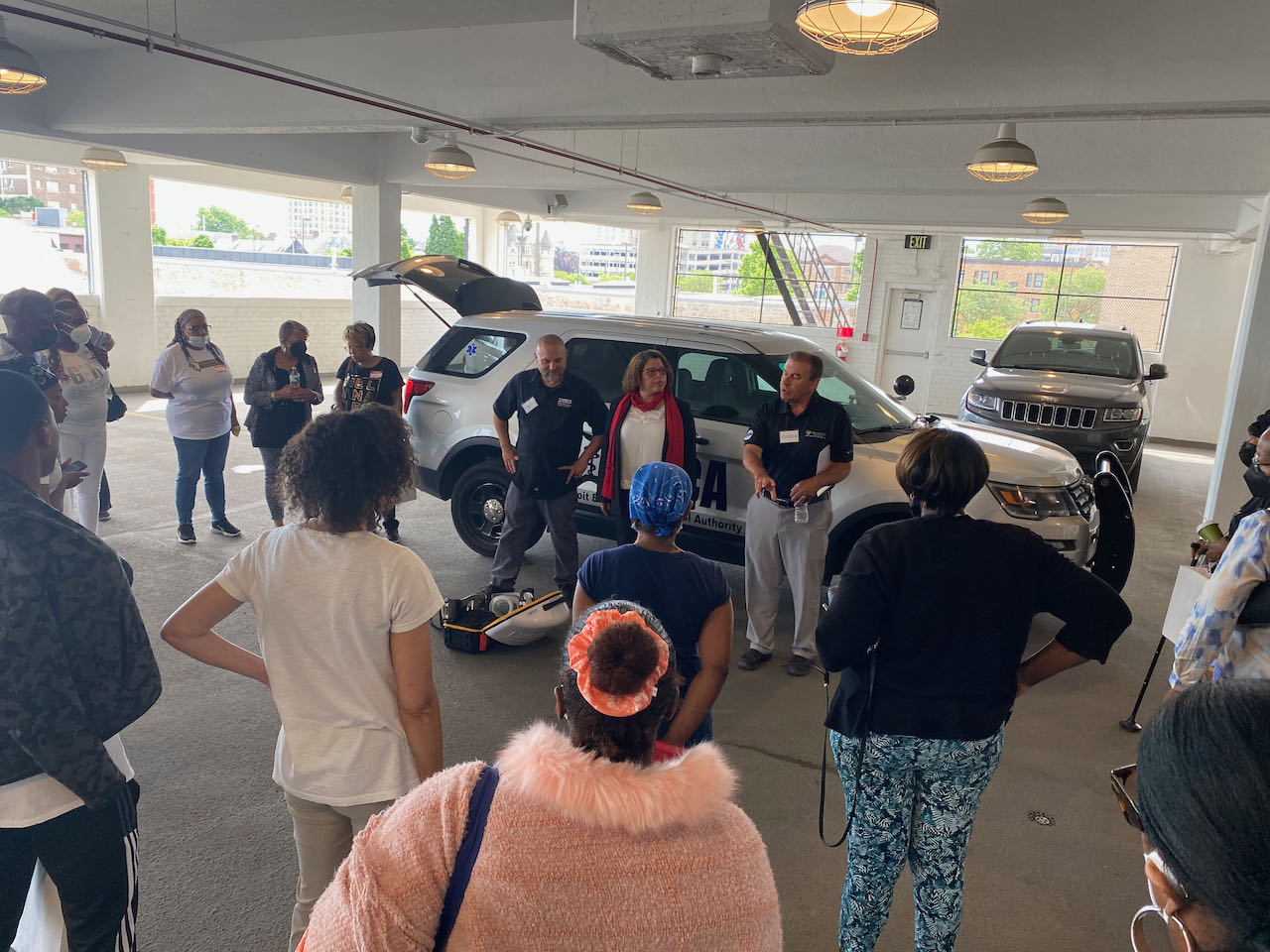
When WDIV Local 4 Detroit decided to teach its viewers the importance of CPR with a full day of sessions in September, the station turned to the man who wrote the book on the current lifesaving techniques.
Brian O’Neil, M.D., FACEP, FAHA, the Munuswamy Dayanandan Endowed Chair and Edward S. Thomas Endowed Professor of the Wayne State University School of Medicine Department of Emergency Medicine, taught the correct way to perform CPR to millions of viewers during the station’s Staying Alive CPR Day on Sept. 13.
A 1986 graduate of the School of Medicine, Dr. O'Neil is a nationally recognized expert in the fields of cardiac and cerebral ischemia and cardiac resuscitation. He helped revise the American Heart Association’s CPR recommendations to the current best method of hands-only chest compressions.
In a segment aired live on Channel 4, Dr. O’Neil demonstrated the correct way to perform CPR to assist someone suffering a cardiac event.
“Historically, the city of Detroit had one of the lowest survival rates from cardiac arrest in the nation (0.2% in 2002). Detroit also had one of the lowest rates of bystander CPR at approximately 14%,” Dr. O’Neil said. “However, we’ve come a long ways since then and are now at the national average for bystander CPR at over 40%. Our discharge-from-hospital rates after cardiac arrest are as high as 16% at some hospitals, with the majority of those with good neurologic outcome.”
Teaching the lifesaving benefits of CPR is not a one-day event for the chairman of the board of the American Heart Association. Dr. O’Neil and his colleagues conduct training sessions throughout the year with the assistance of Michigan Health Endowment Fund grants totaling $350,000. The ongoing project, called “It Takes a City,” includes community interventions for hypertension in addition to sessions teaching correct CPR methods.

During an event in June, Dr. O’Neil and colleagues trained about 50 people during a session conducted in a community outreach space in the Carhartt store near the WSU campus. Many attending the session work in health care.
The event also saw the unveiling of a newly-stocked physician response vehicle used in the WSU/DMC Emergency Medical Services Fellowship, directed by Robert Dunne, M.D., FAEMS, FACEP, associate professor of Emergency Medicine. The fellowship trains EMS personnel to pass the EMS board exam and assume leadership roles. The AHA grants provided a CPR compression device, airway devices and rescue pumps, and “CPR Anywhere” training kits for door-to-door sessions in the city.
“To continue to improve (hospital discharge rates from cardiac events) we need to be able to bring expertise and advanced therapies to those critically ill in Detroit,” Dr. O’Neil said. “Currently, Detroit runs in about 80% basic life support (ambulance) units, which do not carry medication or more advanced technologies. Therefore we’re going to try this physician response vehicle to see if we can continue to improve our outcomes from out-of-hospital cardiac arrest in the city of Detroit.”